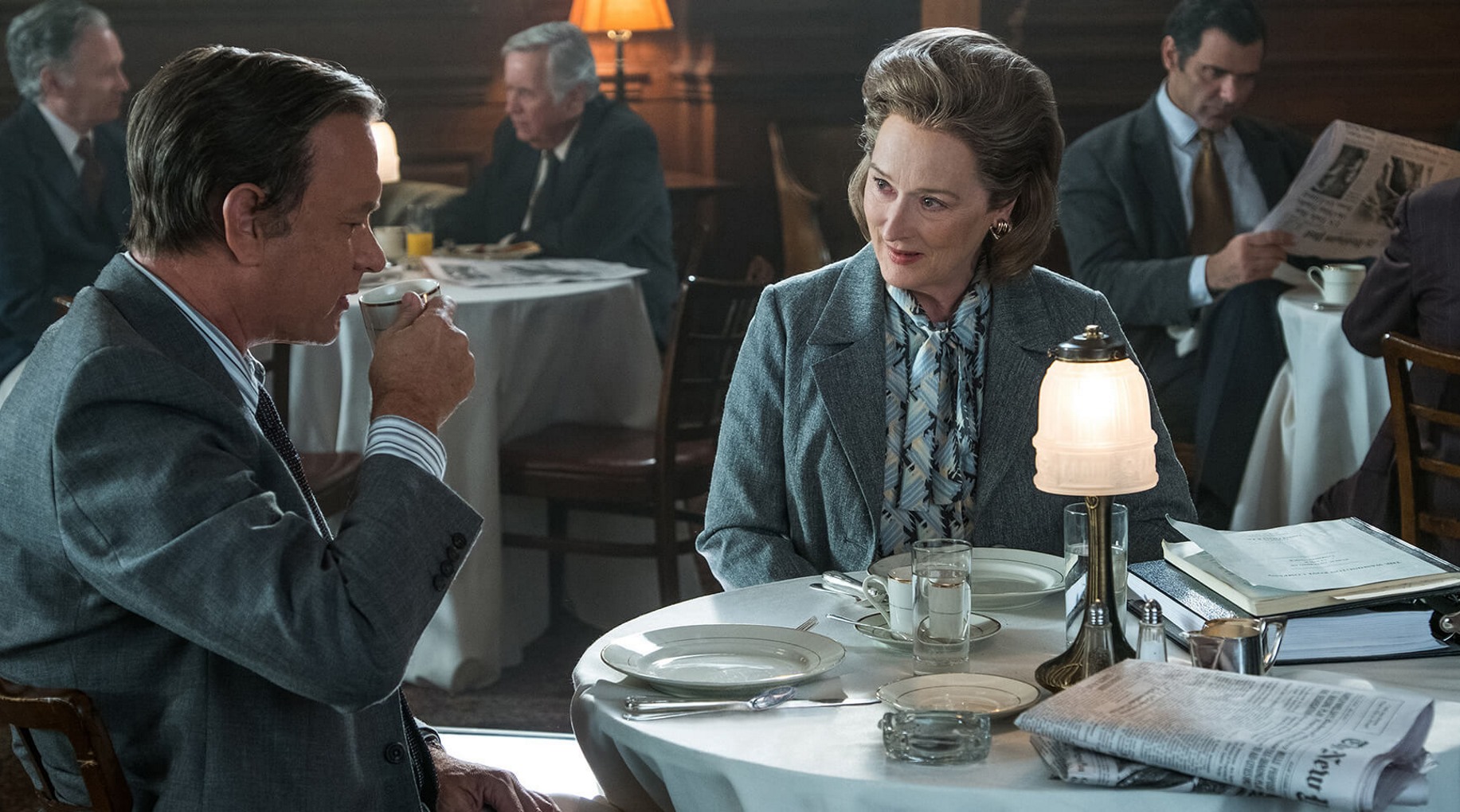GamesRadar+ Verdict
A timely look at a fight to be heard – in the boardroom or the press – that’s elegant without being electric.
Why you can trust GamesRadar+
A president with designs on muzzling press criticism. A brave woman speaking out in a man’s world. Journalists battling to uphold the First Amendment… Centred on The Washington Post’s struggle to publish the leaked ‘Pentagon Papers’ amid threats from the Nixon White House, The Post’s key themes are as vital today as they were in 1971.
While all of the above gives this pre-Watergate tale engaging pertinence, Steven Spielberg’s bio-drama does fall foul of occasional uncanny prescience – one that walks a delicate line between smugness and authentic emotion. That’s not to say that The Post isn’t accomplished, finely crafted, wonderfully cast and worthy of your cash.
Headed up by Tom Hanks (as legendary Post exec editor Ben Bradlee, who later exposed the Watergate scandal) and Meryl Streep (as his privileged publisher, Katherine ‘Kay’ Graham, the first woman to hold the job), a veritable who’s who of an ensemble make paper-shuffling, phone calls and legalese compelling.

With no enlivening ‘deep throat’ dramatics on offer, this is essentially the story of a news team deciding whether to risk imprisonment and ruin in the service of journalistic integrity and public interest. Cue payphone exchanges, newsroom powwows and characters running around waving documents.
That all of this thrills is thanks to the assured performances and Spielberg’s infectious passion for the process of old-school printing (“My God, the fun!” Bradlee whispers in glee as typewriters clack and typesetters rally). Bruce Greenwood nails Secretary of Defence Robert McNamara’s slick-haired gravitas; Jesse Plemons aces it as a company lawyer and Bradley Whitford is an entertainingly odious misogynist. That said, Hanks and Streep do rely on sometimes distracting character tics (him: feet up on furniture, her: fussing with glasses).
While documenting an historical turning point in press and government relationships – both personal and state (Bradlee and Graham’s social closeness with political figures is examined) – the era also allows a secondary theme of gender equality to be explored. Graham has inherited her role from her father, then husband, and is talked over, ignored, underestimated and patronised by male board members, employees and acquaintances.
She recalls Benjamin Johnson’s famous quote when summing up the patriarchal view of her running a newspaper, “Like a dog walking on its hind legs – it is not done well, but you are surprised to find it done at all.” These and other light-touch moments will resonate with viewers in today’s world of battles for gender parity. But Spielberg cannot resist a detracting sledgehammer scene as Graham exits the supreme court, which strives for moving solidarity but merely plays soapy.
Jane Crowther is a contributing editor to Total Film magazine, having formerly been the longtime Editor, as well as serving as the Editor-in-Chief of the Film Group here at Future Plc, which covers Total Film, SFX, and numerous TV and women's interest brands. Jane is also the vice-chair of The Critics' Circle and a BAFTA member. You'll find Jane on GamesRadar+ exploring the biggest movies in the world and living up to her reputation as one of the most authoritative voices on film in the industry.



